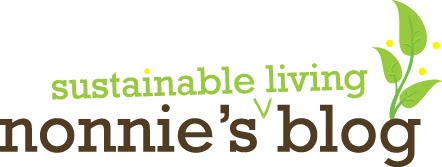



It wasn't easy, but I came out to this fair trade event! It sounded cool, it was affordably priced - and basically because of the subject matter I had to go.
It was also an exciting opportunity to meet some people who are taking part in the great struggle and battle to make the world a healthy place, who perhaps see some of the things I do.
At 5 o'clock I was making pizza in my Stillwater home at a mile a minute, making the bases, throwing the ingredients on, and with the pizzas in the oven I got Savannah to take over making sure the family would survive the end of a work-day without me being there. I set the GPS to the appropriate address in the city and careened to the city in my somewhat low-emissions car, ironically still kicking up greenhouse gas fumes to get there.
I was excited to be going, but when I got to the big magazine print garage where the event was held I found myself in a room full of strangers. I didn't actually know anyone; the people were all unopened books, and I felt spare looking this way and that as well-dressed people spoke to their companions.
In the large space of magazine printing machines we were encircled by a few tables run by the various companies providing fair trade food and alcohol for the event, such as All Good bananas, and Kokako.
The editor of Good magazine, Sarah Heeringa, soon gave the introduction. She had first read Harriet's book,"Fighting the Banana Wars and Other Fairtrade Battles", and had included the story in an issue of Good, where I had read the story. It was a really important story, and had made a big impact on me. I had had no idea that banana workers in many countries were forced to work in conditions with pesticides that large banana companies like Dole knew damaged the human reproductive system (sterilized the workers), or worse, cause horrible birth defects in babies they did give birth to. Because the big banana companies can produce their bananas cheaply in this way, many farmers of smaller farms can't compete. Some islands where bananas are their main way of making a living had given up, and the young people were getting involved in drugs and crime.
But the good part of this story is where fair trade comes in as a way for people to produce make a living from bananas without using the damaging pesticides. There are manypeople in the UK, and now NZ (All Good bananas) who are happy to buy them, and now there are islands which are healthy and flourishing due to fair trade bananas.
Anyways, back to the night - we were a room full of strangers, and insecurities about how suitable my clothing and appearance were haunting me a little in the seemingly sophisticated media savvy crowd. But when Harriet spoke with her rich UK accent, and spoke about her experiences, we all became human again. We shared in her horror when she met a banana worker's wife who had had a deformed baby whom she couldn't comfort, but also in her hope for the future. She had an important message for our world, that trade should place people first. It is a very simple concept, but it doesn't happen when countries push the interests of their own people despite the impact on those living elsewhere.
She brought up a Michael Jackson song, Man in the Mirror. As an artist the song really expressed that our responsibility lies with our own actions - the person we look at in the mirror. Our choices make an impact, such as buying cheap bananas without knowing how they are produced.
Harriet inspired us with a saying she was told by a farmer, that all the tiny raindrops in the mountains and valleys make the mighty river flow. "I hope you'll all be good little raindrops now..."
After she was done speaking again, when we were all humans, I too the opportunity to meet Good's current editor, then it was on to my main mission of the night. I was pretty sure that I could tell who the man who ran All Good bananas was by how he carried himself (and he had a big yellow banana on his black t-shirt, see top photo by Harriet, his name is Chris Morrison) but I found out to make sure and then snuck behind the Banana drink-making pirates to speak to him. I just wanted to know why the large grocery store in our area (the Albany Pak'NSave) had stopped selling his Fair Trade bananas. Had the other main companies such as Dole kicked up a fuss about him selling there? I had loved seeing them at this mainstream grocery store. Apparently it is just the produce manager who is only interested in selling them for a rock-bottom deal. Well, we'll see about that, sonny! Sometimes for your customers - it's just not about the money.

No comments:
Post a Comment